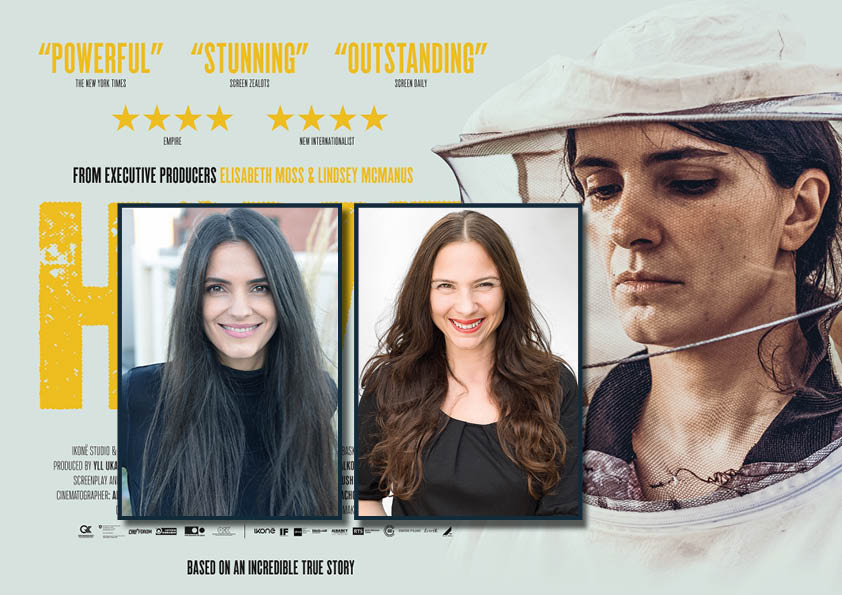Hive – Blerta Basholli – Interview
By Claire Bueno 2 years ago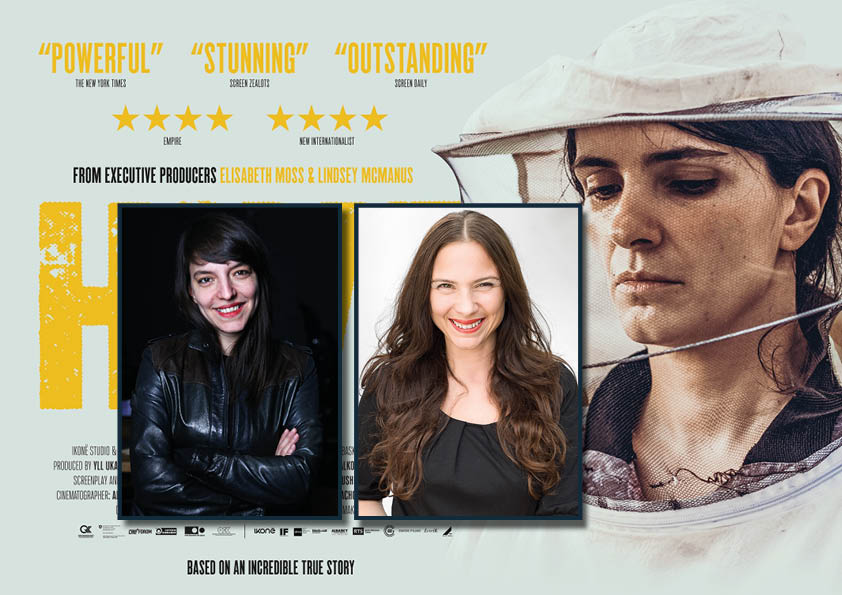
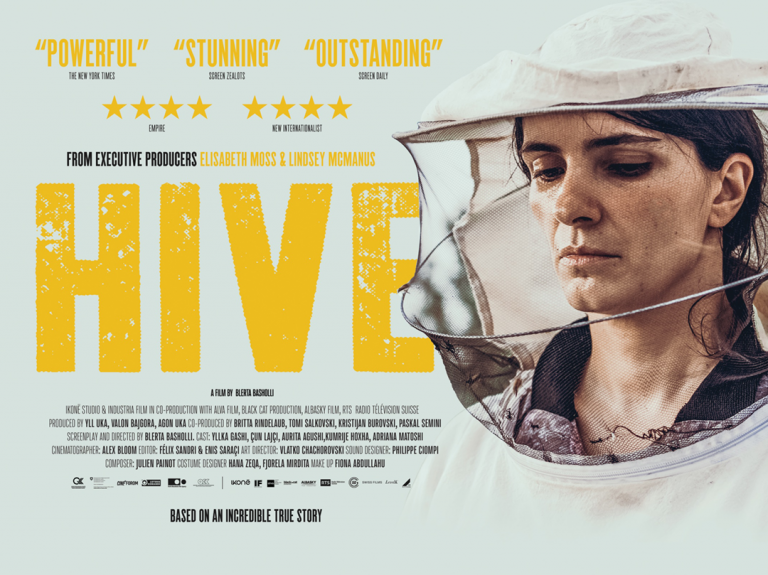
At A Glance
Set in the aftermath of the war in Kosovo comes Hive the inspirational true story of Fahrije Hoti. Living in a patriarchal society, with a husband still missing and a family feed, Hoti defies her adversaries by enterprisingly going into business for herself.

Film Details
Directed by Blerta Basholli
Written by Blerta Basholli
Released by Altitude Films
2022, 84 minutes, Certificate 15
Hive - released in cinemas 18th
Official Website: Altitude.Film
Social Media: @AltitudeFilms #HIVE
Cast
Yllka Gashi as Fahrije Hoti
Çun Lajçi as Haxhi
Aurita Agushi as Zamira
Kumrije Hoxha as Nazmije
Adriana Matoshi as Lume
Molikë Maxhuni as Emine
Blerta Ismaili as Edona
By Claire Bueno
In my career as a journalist I have had the honour of meeting many inspirational people, two such examples are writer / director Blerta Basholli and actress Yllka Gashi. Their film Hive tells the true story of Fahrije Hoti who defied adversity in the aftermath of the war in Kosovo and inadvertently became a beacon of inspiration.
Basholli and Gashi, themselves have experienced the horrors of war and I think quite unexpectedly found themselves having to unearth emotions they both felt they had long since reconciled with. I sincerely hope through making their film they found it a cathartic experience, one thing is for sure they harnessed these emotions and created a film that handles its subject matter with great dignity and respect.
They spoke to me of their admiration for Hoti the queen bee who pragmatically recruited the females within her community to work together in harmony to secure a stronger future for all involved. But I would like to speak of my admiration for the erudite filmmakers who defied their own odds and whose story I have the pleasure of sharing with you.
I wondered how you first became acquainted with Fahrije Hoti’s story?
Initially it was a TV story that we heard, Fahrije was on TV talking about her business, talking about how she was prejudice about it, how she had lost her husband during the war, and for me it was a really interested story and really wanted to meet Fahrije immediately. Luckily I knew Yllka Gashi from before because first of all she is a well-known actress in Kosovo, but also I worked on a short film with her. So I called her almost immediately and told her that I think I found a really interesting story for my first feature film and I want you

to come with me, cos I think you should play her. And we went together to meet Fahrije, and meeting her in person was really another very good impression as a person, as a character, as a really strong woman. I had this really great impression for her and encouragement and inspiration. So it is after meeting her that I really, really sure that this is a really interesting story that I want to tell, and I want to portray this character on screen.
Like you say she really is a fascinating character and there’s so much going on. There’s grieving even though she doesn’t know whether her husband’s alive or not. Having to put food on the table, and then effectively fight the prejudices of this patriarchal society that she’s living in?
Yes, exactly. When she was telling me it’s hard to believe all these life story lines that she had to go through. Like grieving and searching for her husband because she was grieving. But she was not a passive person, she organised a lot of protests; she had an organisation for widowed women, where they were organising different things for the women, but also searching also for the missing people. So she was always very active in finding the missing people of Krushë e Madhe as well as her husband, and also had this idea of moving on, and she did a lot of other businesses. She tried so many other things, but in one film you cannot put everything that she does. Cos for me, what part of her life do I want to focus on? Cos she did so much. But she really was this special person that could do it all, because she was like, “I could never imagine myself as a housewife, I always wanted to work, I always wanted to make business and I probably would have done it even if my husband would have been alive. I just really didn’t want to stay at home. I never liked housework.” She was like, “I was trying to do some tailoring before the war.” So she would make clothes for people and then be paid for it a little bit. After the war she washed clothes and we even shot that scene of her and the women washing clothes for Kosovo forces, NATO forces that were in Kosovo. And they were prejudice for that as well, because they had to deal with soldiers who would bring clothes to them to wash them, and then she would give them back. So she tried many things before coming to this idea to take Ajvar business, and she took it and convinced the women and everything. So even in real life it was hard to believe, how can you go through all of this and still be able just to make it. Let alone putting that on film, have the audience, and make it a believable story.
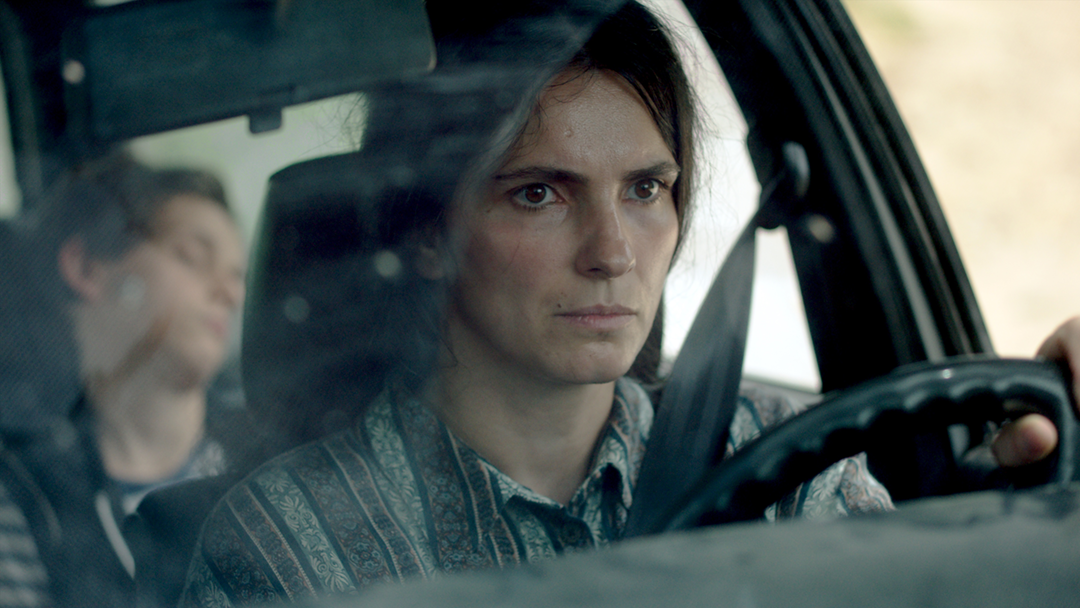
Absolutely, and Yllka is magnetic on screen. What I really loved that there is so much going on in her inner life, she’s quiet, like the world is weighing heavy on her shoulders. Yet there’s this subtle evolution and how we see her transform and I wondered how you worked with Yllka to bring that to the screen?
We spoke a lot with Yllka because we met Fahrije together and then she (Yllka) moved from Kosovo to the US (laughs), I moved from US to Kosovo and we didn’t
see a lot of each other, but we both lived with the character. When we met Fahrije in person, she was really quiet and strong and stoic. And we were like, how do we portray that? I know Yllka resonates this strength the way Fahrije does and has this really strong attitude. But we were both trying to balance; how do you portray this kind of strength, resilience and anxiety, and all the pain that she’s feeling without saying a lot? Because Fahrije was telling us this story of her life, but almost like I couldn’t even see any emotion because I think she was so used to swallow a lot and she didn’t have time to express her feelings. It wasn’t even expected from her to express how she feels, how much she misses her husband and how difficult it is for her to raise the children in that time. She just had to do things and make it work. In that sense, I wanted to portray her and not have to really describe her. And a lot of times we would just sit down with Yllka and we would do rehearsals, like reading the scenes and doing on-set rehearsals, but also it was a lot of brainstorming. For example, the first time during rehearsals, she told me what she had gone through during the war, how she was separated from her family. And I told her my story and sometimes we would cry, because it would really bring those memories that we thought we had overcame and dealt with. But I think we had mostly suppressed them and didn’t want to bring them to the surface and as we were talking it was really sensitive for us as well. We both became mothers as I was writing the script, and how difficult it is to raise children and how must it have been for Fahrije to have her husband gone missing and searching for him. How must this have been for her to feel all this pressure from the society and the women’s resistance at the beginning? So we brainstormed a lot to understand how does it feel to be her. And wanted to portray a lot of that through bees and the symbolism that they had. And then the physical work. Fahrije did a lot of herself and really wanted to portray a lot of feelings through that rather than talking about it or explaining it somehow else.
And I’d like to talk to you about the cinematography as well, because it looks very stripped back, using natural lighting. What did you want to say visually through your cinematography and keeping it minimal?
When I met Fahrije in person I really got the sense of what kind of approach that I’d like for this film, because she felt so real to me, the way she was talking and the way she was doing everything. I was, if I don’t want to make a documentary about her then I want to make a film that feels like a documentary, and feels as realistic as she feels to me. Then I want to focus the camera on her, if I don’t want to explain a lot, I want to focus the camera on her. I was looking for DPs, Alex (Bloom) had shot a film of my friend’s and I really loved the photography he did there. And the first meeting we had he referenced the Dardenne brother’s film Rosetta which was really my reference, but it’s not something we’d spoke about before. He just mentioned it and the documentary approach and I think when I realised that it has to be him because he had the same feeling from the script itself. And that’s how we decided to work together and have a very realistic documentary approach, but also really focus the camera on Fahrije, so that we can really feel more how everything his weighing on her. All the weight you can feel it through the camera rather than explaining it with emotions or dialogue.
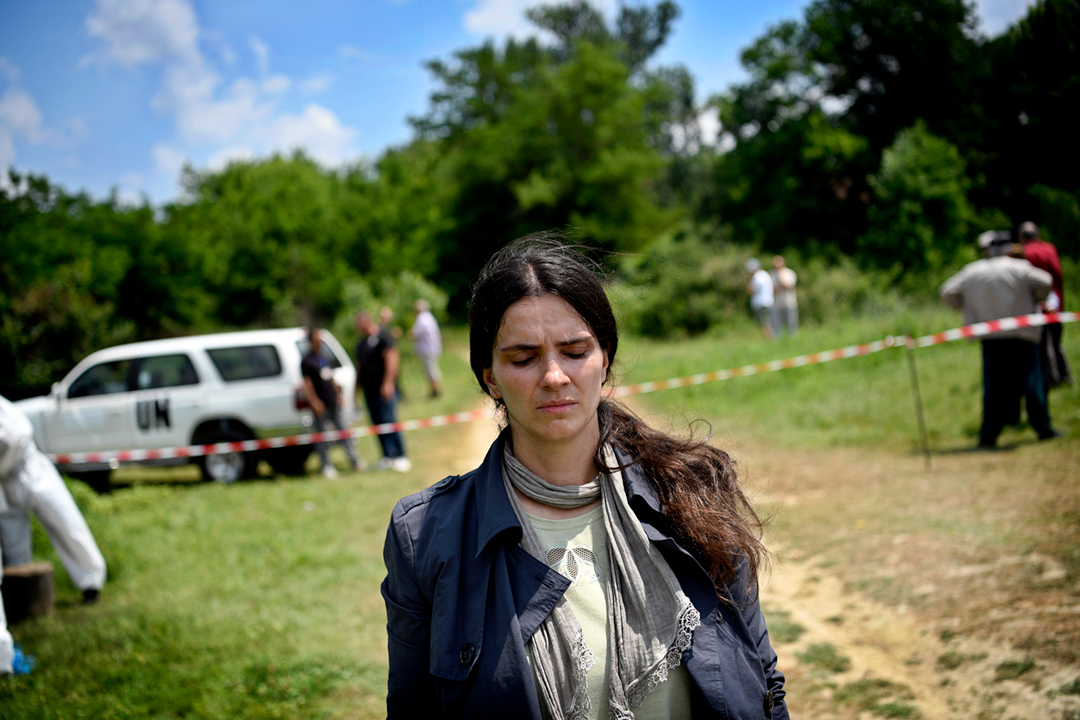
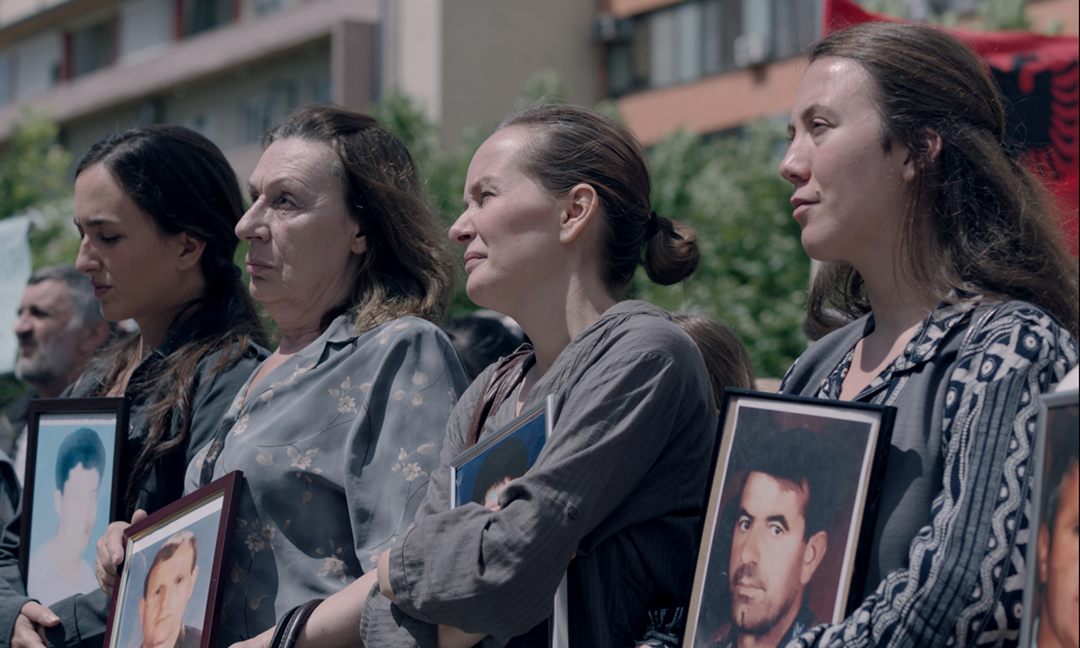
“We wanted to portray a lot of that through bees and the symbolism that they had.”
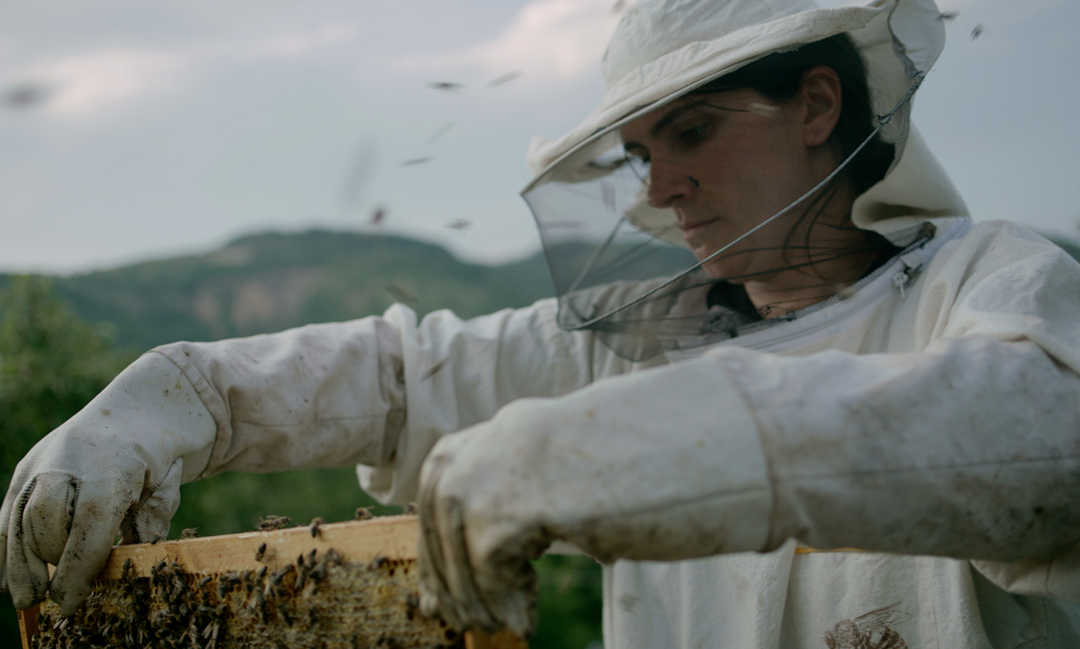
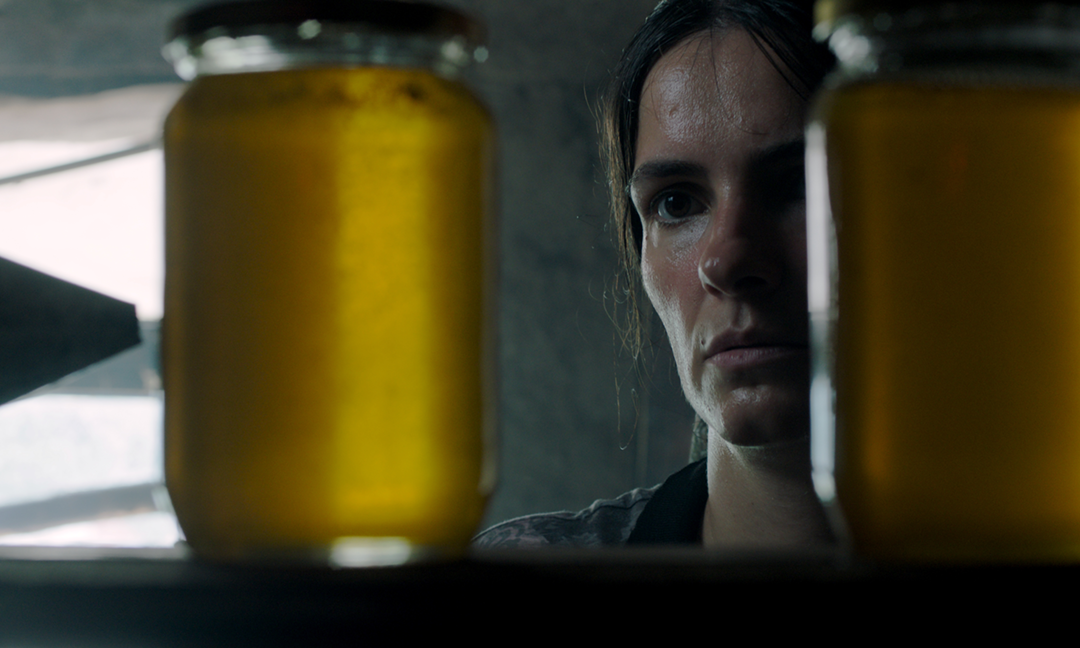
And also where the film succeeds is although this is not a war film, we do see the people that are left; the hurt, the pain, the healing and the unknown that people have to go through in war torn countries. We are seeing it from a different point of view that we don’t often see. Was that important part of the narrative as well?
Yes, absolutely because even more so after we started working on it because as I said we thought we’d healed from the war and we thought we overcame everything we’d been through, but I don’t think we did. I lived in Pristina during the war and then we left the country me, my mom and my sister and then came back. Me, my mom, my brothers, my sisters and my father decided to stay and couldn’t leave anymore, but we witness bombing and a lot of things but the rural areas witness a lot more. We thought we’d spoke about it, we thought we overcame it, but Fahrije is still waiting for her husband. She told me one day that when I asked her, “Do you still wait for him? Do you still think he’s gonna come back alive?” And she said, “Yes.” Sometimes she thinks, ‘What if he comes back alive, what if he has been in some prison that no one knew. And all of a sudden he’s released and comes back.’ And for me that was really a surprise to hear, because I thought by now she had given up, but she didn’t and it must be really hard to live like that. For us it was really important to say it, because it was true, it was based on her life, but we also I really want to talk about war. I kept saying in hope that history won’t repeat itself, but unfortunately it is repeating itself in Ukraine. And again unfortunately the world is not reacting fast enough to stop that war because those who are lost are never coming back and those who survive through that will never forget this, and it’s not easy to heal from a war. And I don’t know what’s going on really. For me having gone through a war myself it’s really sad to see what’s happening. And for me I think it is really important that in one way or another we talk about these moments and again in hope that history is not going to repeat itself.
Continue to Hive -Yllka Gashi interview
Hive - Official Trailer
Claire Bueno
Claire Bueno is a film journalist, presenter and interviewer, having moderated BAFTA, Royal Television Society (RTS), Women in Film and Television (WFTV), and Apple Store Q&As and hosted Comic Con panel talks. Claire is the founder of Premiere Scene Magazine and has had the privilege of interviewing esteemed artists including Tom Cruise, George Clooney, Brad Pitt, Sir Anthony Hopkins, Sigourney Weaver, Emily Blunt, Samuel L Jackson, James Cameron and Andy Serkis.
As a media coach Claire works with leading personal publicists, HBO, Netflix, Sky, ITV, Penguin Random House, the BFI, DDA, MacMillan and Premier, offering practical coaching sessions and safe environment for talent to perfect their interview technique before facing the press. She has extensive experience working with emerging and seasoned professionals and where English is not their first language.
Additionally, Claire is the producer of the critically acclaimed feature documentary CLEANIN’ UP THE TOWN: Remembering Ghostbusters and the upcoming TOO HOT TO HANDLE: Remembering Ghostbusters II.

